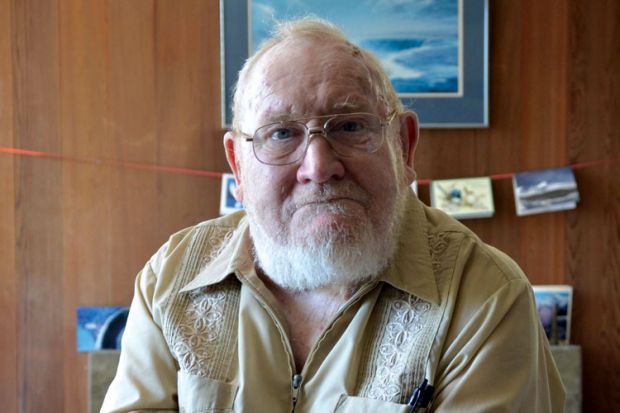David Stoddart was born in Stockton-on-Tees on 15 November 1937 and studied geography at St John’s College, University of Cambridge (1956-59). He was to remain at Cambridge for the next 32 years as a demonstrator and then university lecturer in geography as well as fellow of Churchill College (1966-87).
Yet he soon started ranging well beyond his home base. It was traditional in Cambridge at the time, Professor Stoddart once wrote, for “undergraduates as a matter of routine [to go] out on expeditions all over the world. That is how I got to take the party to the headwaters of the Orinoco [in 1959]. You begged and scrounged everything from cheap passages to tomato ketchup and somehow or other made a go of it.” He also recalled a trip to Colombia during which “some portions of the trail were so steep that to get up them one had to hang on to the tail of the mule in front, and this resulted in living in a horrendous miasma of mule gas”.
It was a trip to British Honduras, however, that first sparked Professor Stoddart’s interest in coral reefs – something he then pursued in the Pacific and the Indian oceans as well as the Caribbean. He went on to become the co-founder and first president of the International Society for Reef Studies, and the first coordinating editor of the journal Coral Reefs, while also helping to found the journal Progress in Geography. Along with many more specialist papers, he wrote a major monograph titled On Geography and Its History (1986).
As well as providing detailed descriptions of many reefs that can serve as benchmarks to track future environmental change, Professor Stoddart spearheaded a successful campaign to scupper plans to turn the Seychelles island of Aldabra – site of the world’s second largest atoll – into a British airbase, resulting in its being declared a Unesco world heritage site.
In 1988, he moved to the University of California, Berkeley as professor of geography (becoming emeritus in 2000) and chair of the department (1988-94). He became a striking figure on campus, always dressed in “full whites” and sporting a full red beard as a result of an early decision that he “was not prepared to waste [his] life shaving every day”.
A lifetime working in scorching heat eventually took its toll on Professor Stoddart’s health in the form of skin cancer. He died on 23 November and is survived by his wife June, son Michael, daughter Aldabra and a granddaughter.
Register to continue
Why register?
- Registration is free and only takes a moment
- Once registered, you can read 3 articles a month
- Sign up for our newsletter
Subscribe
Or subscribe for unlimited access to:
- Unlimited access to news, views, insights & reviews
- Digital editions
- Digital access to THE’s university and college rankings analysis
Already registered or a current subscriber? Login

